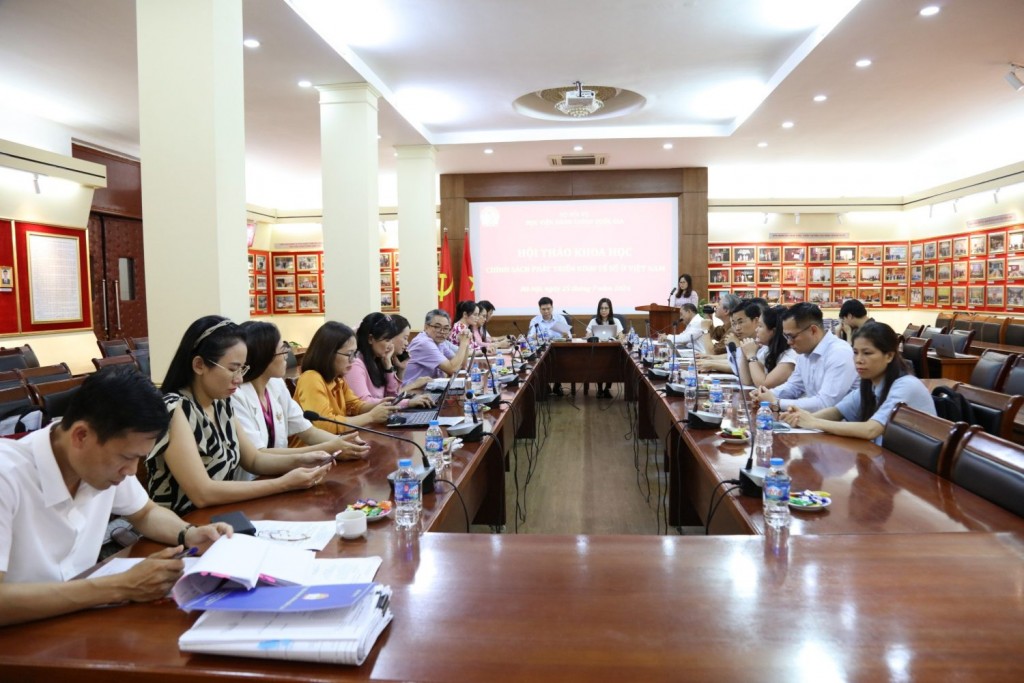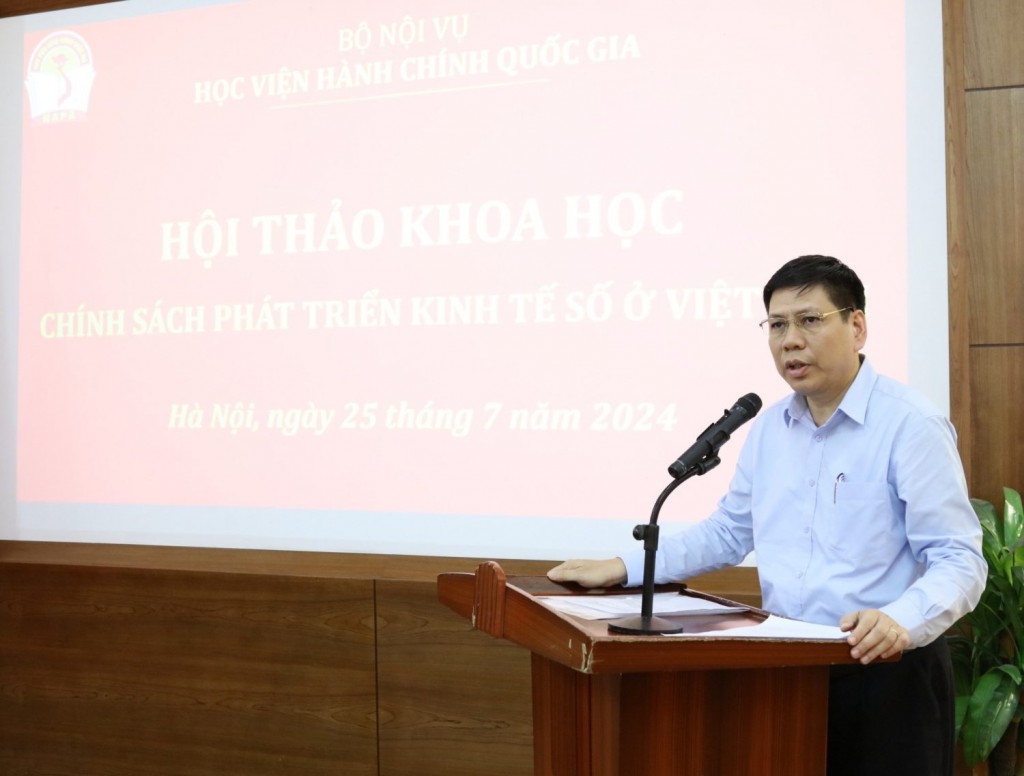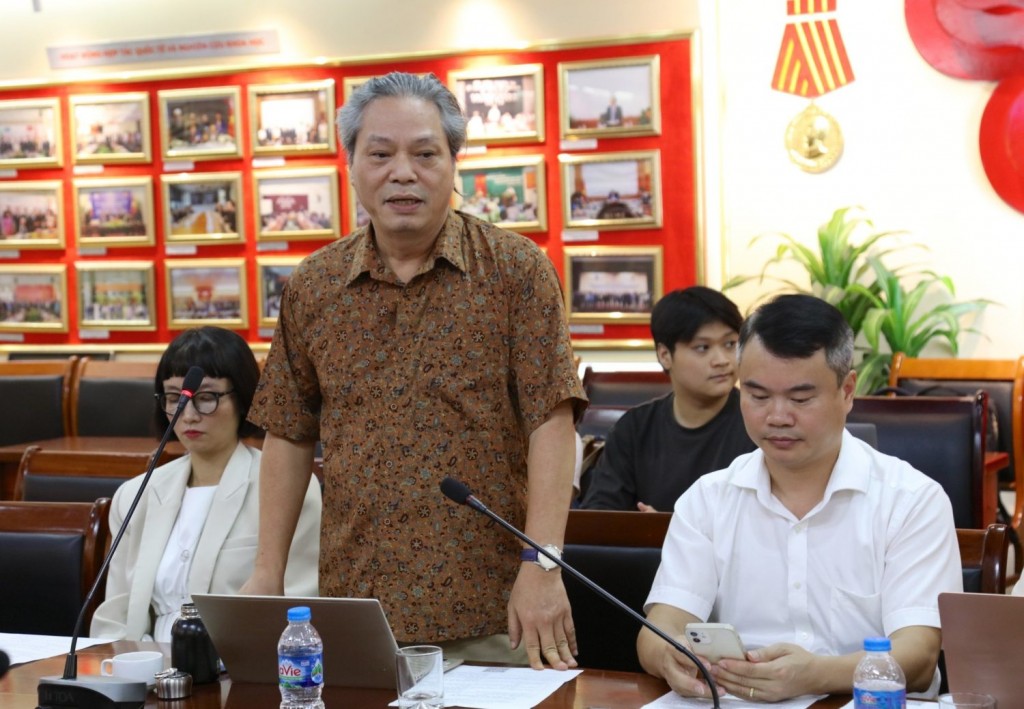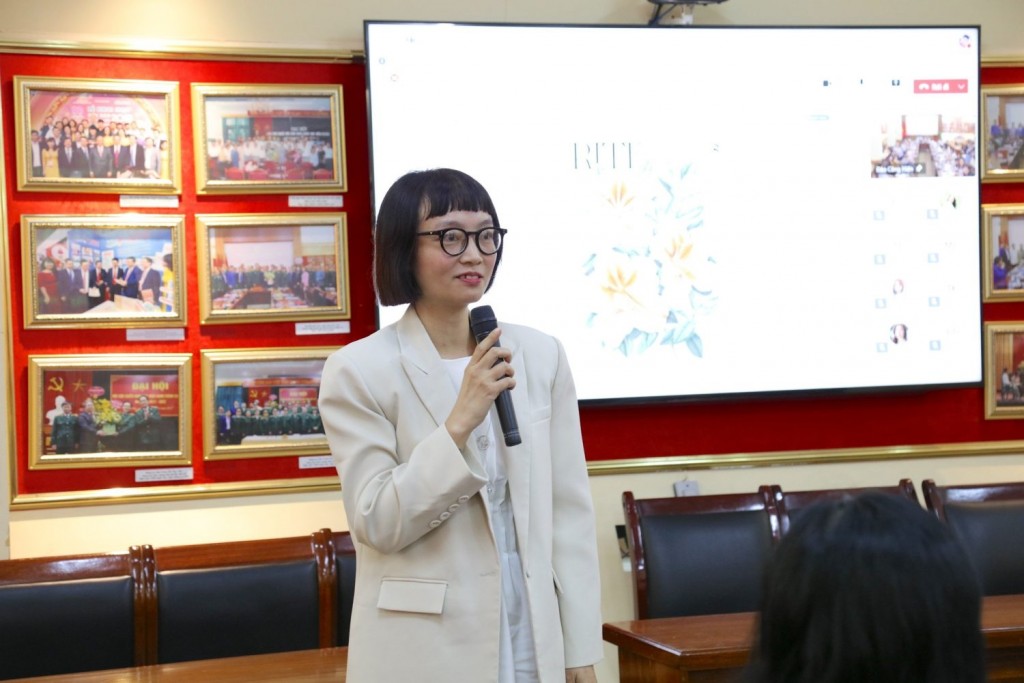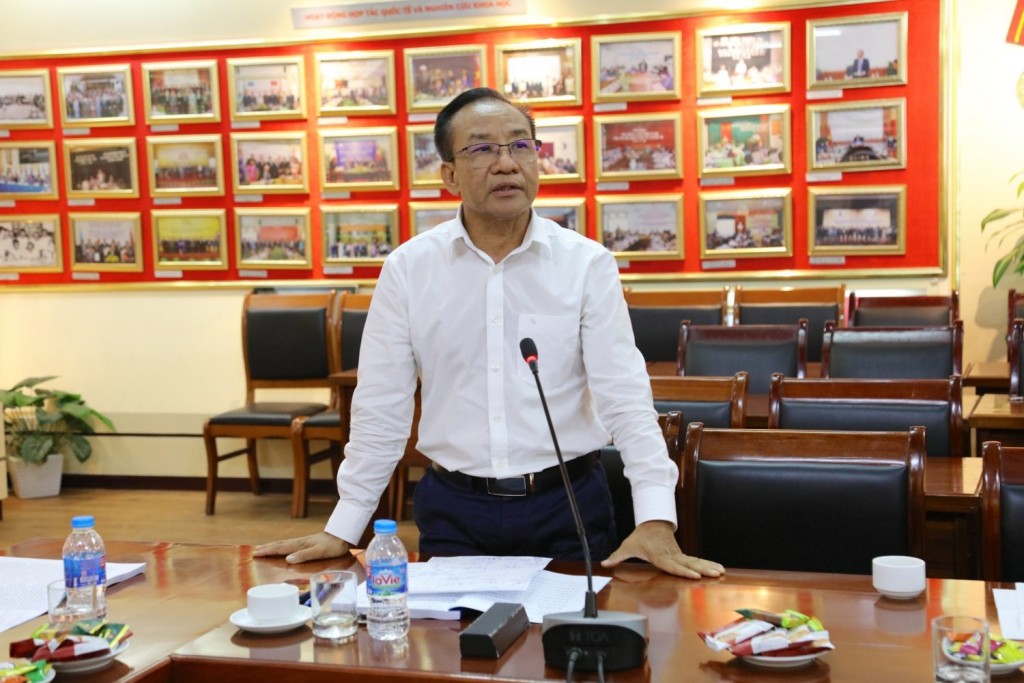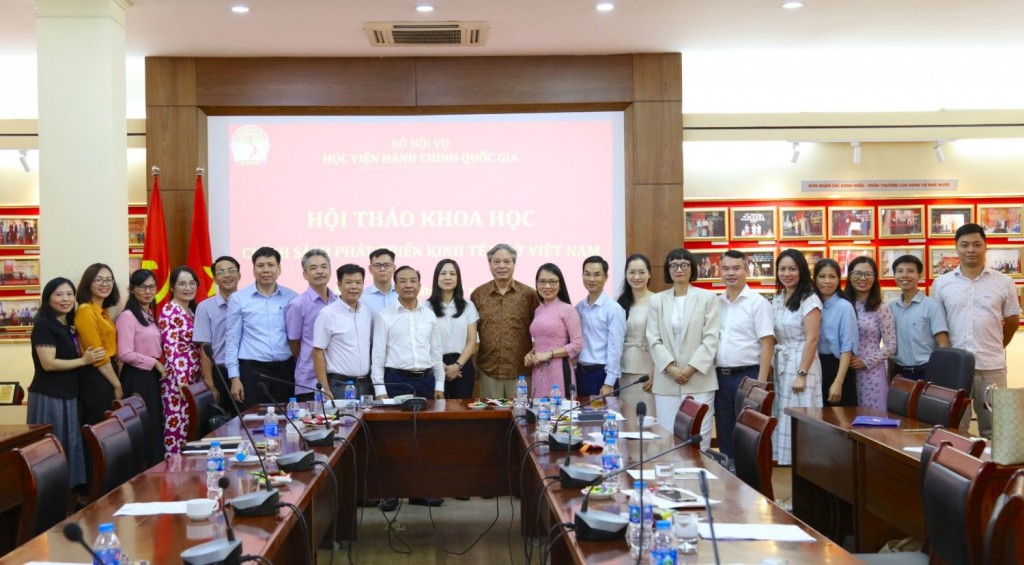On July 25, 2024, at NAPA Headquarters in Ha Noi, the Faculty of Economic Management of the National Academy of Public Administration (NAPA) organized the workshop “Policies for Developing the Digital Economy in Viet Nam.” The workshop was co-chaired and facilitated by Dr. Le Toan Thang, Dean of the Faculty, and Assoc. Prof. Dr. Do Thi Kim Tien, Deputy Dean of the Faculty.
The workshop featured the participation of Mr. Do Tien Thinh, Deputy Director of the Viet Nam National Innovation Center, Ministry of Planning and Investment; Mr. Nguyen Huu Tuan, Head of the Policy Division, Viet Nam E-commerce and Digital Economy Agency, Ministry of Industry and Trade; and Ms. Lala Nguyen, CEO of Rite Agency.
From NAPA, there were Dr. Nguyen Dang Que, NAPA Vice President; Assoc. Prof. Dr. Luong Thanh Cuong, NAPA Vice President; representatives from various NAPA faculties, departments, and units, along with lecturers, trainees, and students from the Faculty of Economic Management. The workshop was also streamed online to participants at various locations.
In his opening remarks, Dr. Nguyen Toan Thanh, Dean of the Faculty of Economic Management, emphasized that in recent years, the digital economy and digital society have become major development trends globally. Countries and enterprises worldwide are striving to adapt and fully leverage the potential of digital technologies to enhance efficiency, create new values, and aim for sustainable growth in the future.
According to the Ministry of Information and Communications, in 2022 and 2023, Viet Nam led the ASEAN region in digital economy growth and is expected to continue its rapid growth in the coming years. The socio-economic development plan for the period 2021-2025 aims for the digital economy to account for over 20% of the country’s GDP, with annual growth rates of 20% – 25%, tripling the GDP growth rate. The digital economy’s share in each sector is expected to reach at least 10%. To achieve these goals, the role of the government is crucial in continuing to strengthen and improve the institutional, policy, and legal framework, thereby facilitating and accelerating the implementation of tasks and solutions to support and promote the development of the digital economy and digital society.
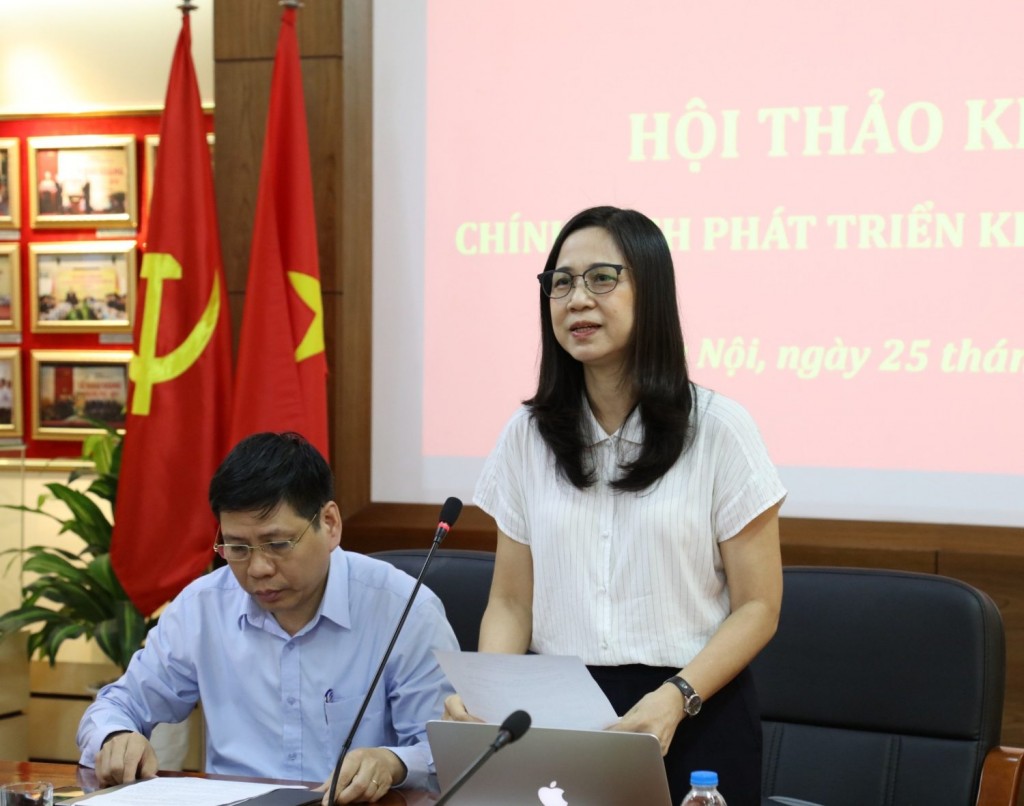
Assoc. Prof. Dr. Do Thi Kim Tien, Deputy Dean of the Faculty of Economic Management, at the workshop.
The workshop titled “Policies for Developing the Digital Economy in Viet Nam” seeks to gather contributions and discussions from experts and scholars on both theoretical and practical aspects. These contributions will provide important arguments for proposing policy recommendations and solutions to make digital economic activities a true driving force for sustainable economic development in Viet Nam.
In his presentation on the policies for developing the digital economy in Viet Nam – current situation and solutions, Dr. Nguyen Tat Thinh suggested that it is necessary first to establish a national committee on the digital economy and digital society to address issues distinct from traditional governance. He emphasized the need to prioritize budgeting for the digital economy to achieve breakthroughs and economic development. Additionally, there should be specialized technology zones capable of meeting the requirements for digital economic development. Furthermore, the quality of the workforce is a fundamental issue that needs to be addressed to promote the digital economy and digital space. This includes urgent needs for training, enhancing systemic thinking, and developing capabilities to anticipate and master digital technology.
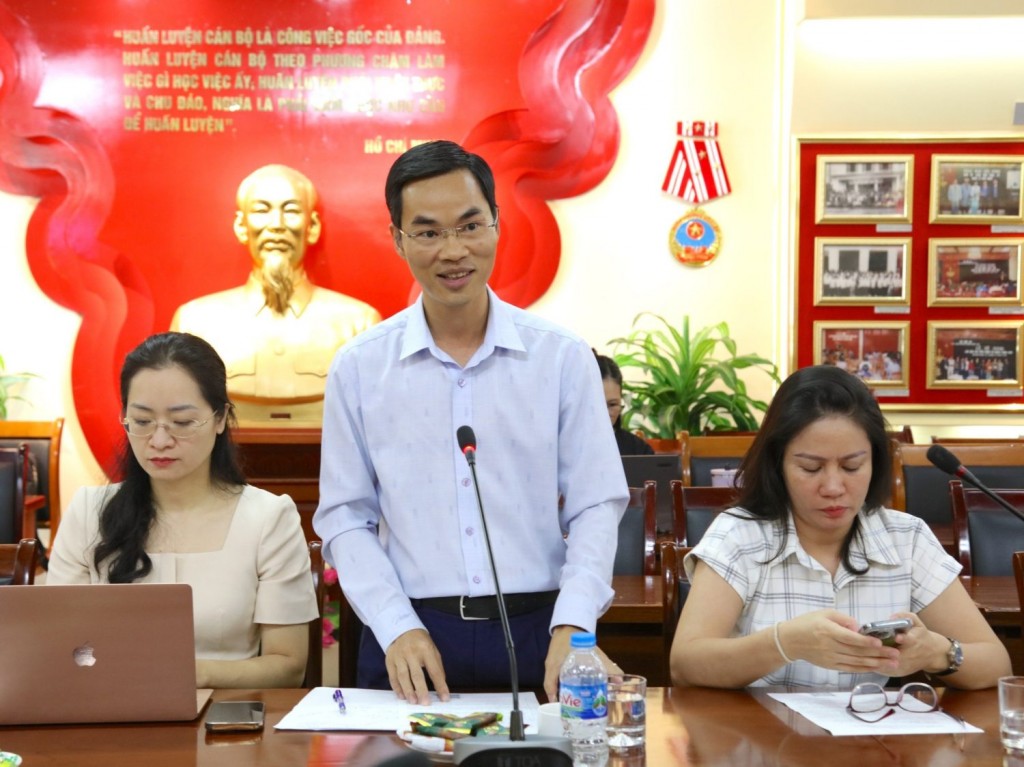
Mr. Do Tien Thinh, Deputy Director of the Viet Nam National Innovation Center, Ministry of Planning and Investment, at the workshop.
Mr. Do Tien Thinh’s presentation focused on artificial intelligence (AI), highlighting that AI is considered the most crucial technological pillar for breakthroughs in developing the digital economy. Viet Nam has several advantages in harnessing the significant benefits that AI can bring, including: (1) a “golden population structure” with 70% of citizens under the age of 35; (2) a developing “internet economy”; and (3) supportive policies aimed at promoting the deployment and advancement of digital technology. Several policy recommendations for developing an AI-based digital economy were proposed, such as guiding policy development with an ecosystem mindset for AI, implementing policies for AI training in the public sector, for workers and students, and perfecting institutions to create a favorable environment for AI production and business activities.
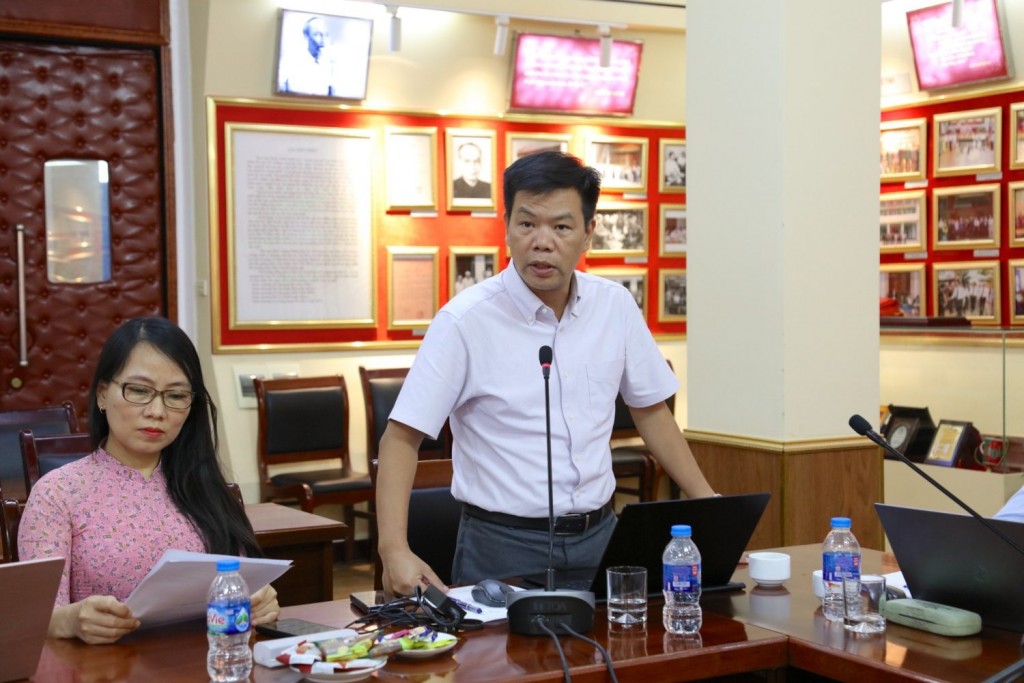
Mr. Nguyen Huu Tuan, Head of the Policy Division, Viet Nam E-commerce and Digital Economy Agency, Ministry of Industry and Trade, at the workshop.
In his presentation on “State Management of E-commerce in Viet Nam,” Mr. Nguyen Huu Tuan provided an overview of the current landscape of e-commerce activities. He noted that Viet Nam’s legal framework for e-commerce is generally quite complete. Based on legal regulations, stakeholders can identify their rights and obligations and choose the most suitable resolution method under their specific conditions and circumstances in case of disputes. Additionally, e-commerce law serves as a legal tool to protect and guide business entities, creating a safe business environment through e-commerce.
Approaching business marketing policy in the digital economy era, Ms. Lala Nguyen shared insights into creative thinking and building brand marketing strategies in an era of rapid technological advancement. She discussed various aspects, including costs, time, adaptability, AI tools, and online sales trends.
In his remarks, Dr. Nguyen Dang Que highly appreciated the scientific and urgent nature of the workshop’s theme. With the strong development of the Fourth Industrial Revolution, digital technology has become an indispensable part of almost every aspect of our lives. Viet Nam has set forth many major policies and directions for digital technology and national digital transformation. However, to establish correct policies, objectives, tasks, and solutions as the foundation for developing strategies, policies, and plans focused on the key areas of digital economic development, it is crucial to accurately assess and identify opportunities and challenges. Alongside building a legal environment conducive to the development of the digital economy, it is essential to effectively address issues related to network information security and promptly tackle arising limitations. The State’s role should also be pioneering in building the infrastructure for digital economic development, enabling businesses to adopt digital technology strategies and policies to improve products, increase sales, expand markets, and build the position and strength of enterprises, thereby contributing significantly to promoting digital economic development.
In his concluding remarks, Dr. Nguyen Toan Thang expressed his sincere gratitude to the experts and scholars who discussed and shared diverse perspectives on the digital economy, the role of the digital economy, e-commerce, innovation, and state policies to promote the development of the digital economy across various sectors. The workshop received nearly 30 presentations and discussions, which the workshop organizers collected and synthesized as valuable knowledge for researching and proposing solutions for the development of the digital economy in Viet Nam in the future.


